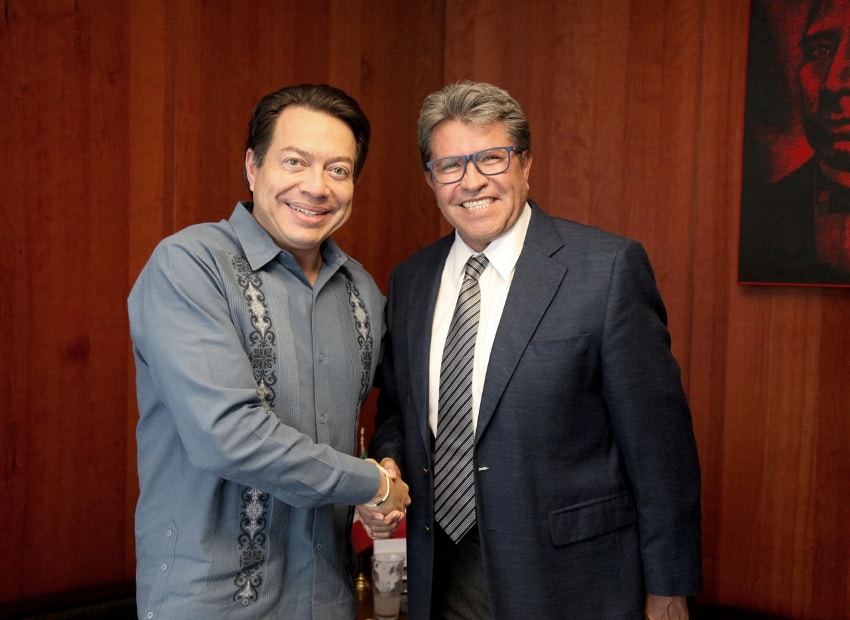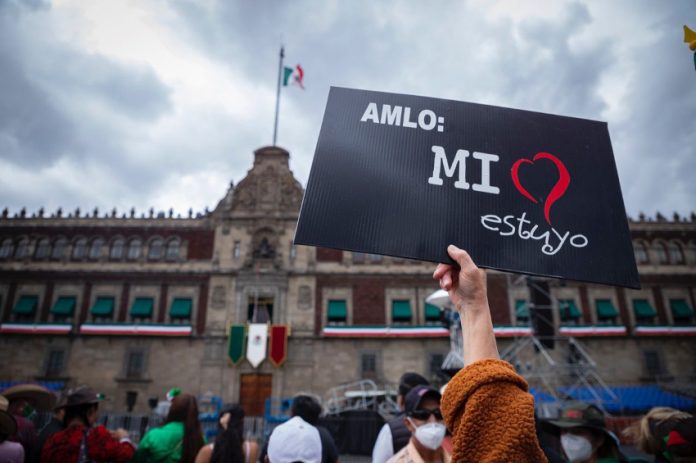The ruling Morena party will pursue a “Plan B” to pass the federal government’s proposed electoral reform, changing legislation through secondary laws rather than amending the constitution, President López Obrador announced on Tuesday.
To make constitutional changes, Morena requires support from the opposition parties. However, the ruling party’s simple majority in Congress is enough to make secondary changes without achieving a consensus.
The president also called on his supporters to march in defense of the proposed electoral reform on November 27. His announcement follows a nation-wide demonstration against the reform and in favor of the National Electoral Institute (INE) on Sunday in which an estimated 500,000 people protested across the country.
“I call on all Mexicans to defend democracy and continue defending the constitutional reform initiative, so that it is known that [opposition politicians] are acting undemocratically if they reject it,” the president said during his regular press briefing on Tuesday.
Because December 1 marks four years into his term, he will deliver his annual government address during the protest. This is likely to draw a crowd, as President López Obrador remains popular, with a 56% approval rating based on the most recent polls.
The reform proposes replacing the INE with a centralized electoral authority, reducing the number of electoral councilors, and selecting electoral officials through a citizen vote, among other changes.
The president defended the electoral reform on the grounds that the INE promotes recurrent electoral fraud, referencing the controversial 2006 presidential election in which President López Obrador lost to former president Felipe Calderón of the National Action Party (PAN) by a mere 0.6%. President Lopez Obrador tried to contest the result, given his lead in the period before the election, but the electoral authorities denied his request.
Still, citizens largely approve of the INE, at 73% according to a recent poll by the newspaper Reforma.

Following Sunday’s march in support of the INE, the Institutional Revolutionary Party (PRI) president Alejandro “Alito” Moreno maintained that his party will not support the electoral reform. Despite past speculation that the PRI could be subject to coercion by Morena to support the initiative, the party has remained steadfast that it will not approve any proposals weakening electoral authorities.
“We [the PRI] will defend the INE in the Chamber of Deputies…we are clear in our position,” Moreno said. “We join the call against the government that seeks to threaten the autonomy of the electoral authorities!”
Despite the governing party’s threats that it will pass its desired electoral changes through secondary laws, this may not be possible without violating the constitution. Morena Senator Ricardo Monreal conceded that the most controversial components of the electoral reform, including structural changes to the INE and reducing the number of proportional representation seats in Congress, would not be possible without changing the constitution.
Chamber of Deputies President Sergio Gutiérrez Luna (Morena), who is part of the electoral reform congressional working group, said that he and other ruling party legislators are searching for ways to pass components of the reform through secondary laws, acknowledging that about 90% of the reform will not be possible to pass.
“We will seek a reform that, indeed, could not include some issues outlined in the constitution, such as the financing of political parties, the composition of the [INE], among others,” Gutiérrez Luna said.
A new proposal considering secondary legislation will be proposed in the coming days.
With reports from Reforma, La Jornada, and El Universal
